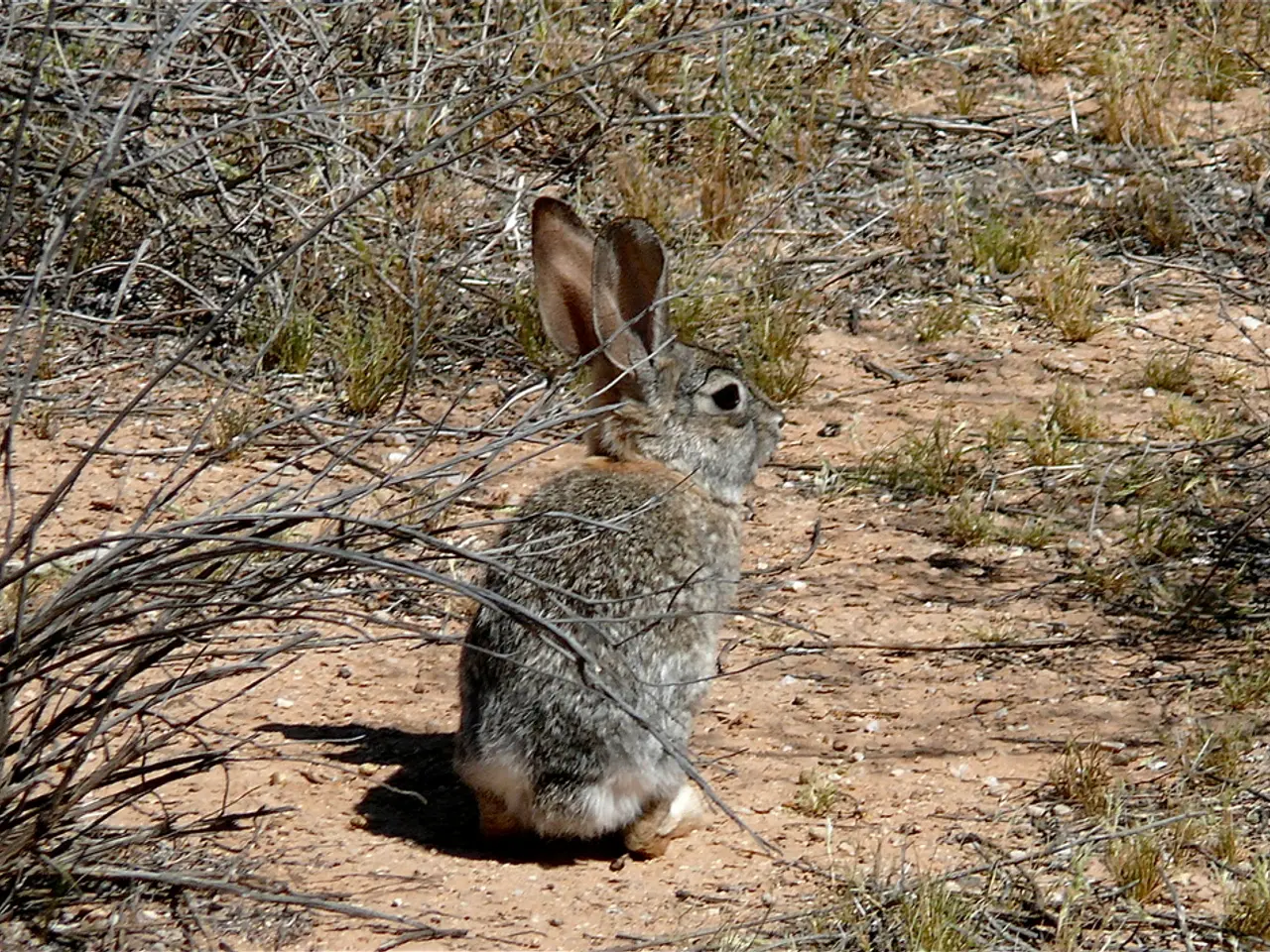Bunny Diet: predominantly grass with minimal consumption of carrots
A balanced diet is key to maintaining a healthy and happy rabbit, whether wild or domestic. This article will provide you with essential information on how to ensure your bunny gets the right nutrition.
Firstly, it's important to remember that rabbit pellets are a supplement, not a staple, in a rabbit's diet. Offer a small amount of high-quality pellets once or twice daily, ensuring they contain natural ingredients and no added fillers.
Hay, such as Timothy hay and Orchard grass, forms the backbone of a rabbit's diet. It should make up the majority of a rabbit's food and can be available to them at all times. Fresh hay provides the fiber necessary for a rabbit's digestive system and other essential nutrients. To add diversity to a rabbit's hay supply, Orchard grass can be mixed in.
Fresh leafy greens like romaine lettuce, kale, and parsley should make up the bulk of a bunny's fresh food intake. These greens are packed with nutrients and are safe for rabbits.
While rabbits may be tempted by carrots, it's best to avoid them due to their high sugar content. Instead, opt for fresh vegetables like bell peppers, artichoke leaves, broccoli, Brussels sprouts, and peas, which can be given to rabbits in moderation.
Fresh water is a must for rabbits. Make sure the bunnies have access to fresh water, with the water being changed daily or even twice daily.
Wild rabbits get all their nutrients from plants, so pet rabbits should also stick to a primarily plant-based diet. This includes hay, fresh grass, leafy greens, and vitamin-rich vegetables, which support their digestion and overall health.
A few pellets a day can help fill in any nutritional gaps. However, it's crucial to consult a veterinarian for any specific dietary guidance. Factors to consider when determining how much food to give a rabbit include age, activity level, health, and breed. Offer fresh greens once or twice daily, with the amount depending on the rabbit's weight (1 to 2 cups per 4 pounds of body weight).
In conclusion, a bunny's diet should consist of hay, leafy greens, fresh vegetables, and rabbit pellets for a balanced nutrition. By following these guidelines, you can help your rabbit live a long, healthy, and happy life.
Read also:
- Peptide YY (PYY): Exploring its Role in Appetite Suppression, Intestinal Health, and Cognitive Links
- Toddler Health: Rotavirus Signs, Origins, and Potential Complications
- Digestive issues and heart discomfort: Root causes and associated health conditions
- House Infernos: Deadly Hazards Surpassing the Flames








